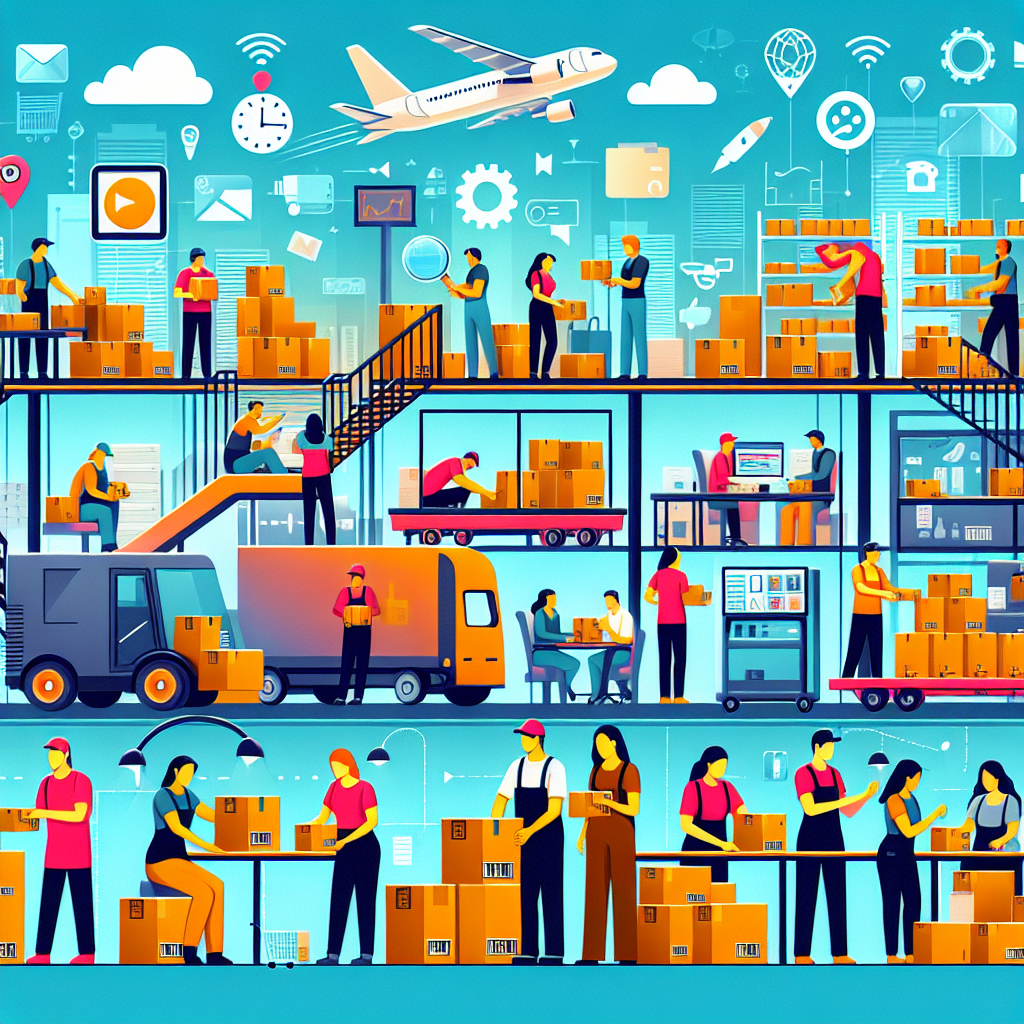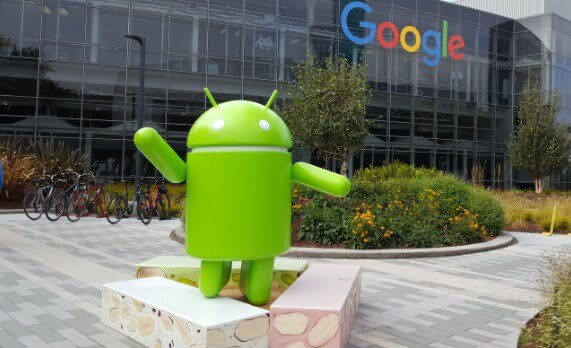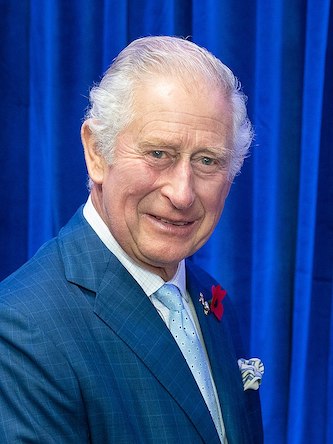Amazon started thirty years ago and has become a huge company known as “The Everything Company.” This change is clear in its big operations, like the fulfillment center in Dartford, near London. With millions of items available and hundreds of thousands sold every day, Amazon is very efficient, claiming it can process an order in just two hours. But this is just a small part of what Amazon does, which also includes streaming services like Amazon Prime Video, smart home devices like Alexa and Ring, and a strong presence in cloud computing with Amazon Web Services.
Jeff Bezos founded Amazon in 1994, and since then, it has grown quickly and kept coming up with new ideas. Even though the company has faced criticism for its working conditions and tax practices, it still leads in many areas. As Amazon enters its fourth decade, people are wondering how it will keep growing. Analysts like Sucharita Kodali are thinking about how hard it will be to keep double-digit growth when the company is already making half a trillion dollars. One way to do this might be to use the shopping data from Prime members to improve advertising on its streaming service, which is becoming more dependent on commercial revenue.
Amazon’s many different business areas also create challenges. For example, it’s not clear how its satellite division, Kuiper, and its grocery store chain, Whole Foods, can work together. Experts suggest that Amazon should keep trying new business ideas, even if some don’t succeed. The company recently stopped a robot line after just nine months, showing it’s willing to take risks. But as Amazon grows, it also has to deal with more rules about how it uses data, its impact on the environment, and its overall size.
Amazon’s size creates problems, especially in cities where the infrastructure can’t handle all the deliveries. Juozas Kaziukėnas, the founder of Marketplace Pulse, points out that emerging markets like India, Mexico, and Brazil are important for Amazon’s future growth. However, entering these markets means Amazon needs to build the right infrastructure to support e-commerce. This is a big challenge as the company tries to expand globally. Additionally, competition from Chinese retailers like Temu and Shein is another issue Amazon must face, especially since these companies attract customers with lower prices during tough economic times. While some believe these competitors will stay small, any serious challenge to Amazon will likely need a big change in how consumers shop or new technology, possibly involving artificial intelligence. As Amazon looks back and plans for the future, it must stay alert and flexible in a changing market.
Original news source: Amazon at 30: What next for ‘The Everything Company’? (BBC)
🎧 Listen:
Slow
Normal
Fast
📖 Vocabulary:
| 1 | fulfillment | Completing an order or request |
| 2 | efficient | Working in a well-organized and productive way |
| 3 | streaming | Watching or listening to media content over the internet |
| 4 | criticism | Disapproval or negative feedback |
| 5 | analysts | People who study or evaluate something |
| 6 | revenue | Money earned from business activities |
| 7 | division | A separate part of a company or organization |
| 8 | infrastructure | The basic physical and organizational structures needed for a society or enterprise |
| 9 | emerging | Starting to become important or noticed |
| 10 | expand | To grow or increase in size |
| 11 | competition | The act of trying to win or be more successful than others |
| 12 | attract | To draw or bring someone or something closer |
| 13 | flexible | Able to change or adapt easily |
| 14 | artificial intelligence | Computer systems that can perform tasks that usually require human intelligence |
| 15 | alert | Being watchful and ready to respond |
Group or Classroom Activities
Warm-up Activities:
– CHARADES
Instructions: Students will take turns acting out different aspects of Amazon’s business model or services (e.g., delivery, Prime Video, Alexa) without speaking. The rest of the class will guess what they are mimicking.
– OPINION POLL
Instructions: Students will be given statements related to Amazon, such as “Amazon should improve its working conditions” or “Amazon’s expansion into new markets is beneficial.” They will move to different sides of the room to indicate their agreement or disagreement, followed by a group discussion on their viewpoints.
– SKETCH IT
Instructions: In pairs, students will choose a specific business area of Amazon (e.g., e-commerce, cloud computing, grocery stores) and sketch a quick diagram illustrating how it operates or its impact on consumers. Afterward, they will present their sketches to the class.
– FUTURE PREDICTIONS
Instructions: Students will brainstorm and write down their predictions for Amazon’s future in the next 10 years based on the article. They will then share their predictions in small groups and discuss the likelihood of each.
– MIND MAP
Instructions: As a class, students will create a mind map on the whiteboard around the central idea of Amazon. They will add branches for different aspects of the company mentioned in the article, such as services, challenges, and competitors, encouraging contributions from all students.
🤔 Comprehension Questions:
1. What are some of the different services and products that Amazon offers beyond online shopping?
2. Who founded Amazon and in what year did it start?
3. What challenges does Amazon face as it tries to continue growing in the future?
4. How does Amazon plan to improve advertising on its streaming service?
5. Why is it important for Amazon to develop infrastructure in emerging markets like India and Brazil?
6. What recent action did Amazon take regarding its robot line, and what does this show about the company’s approach to new ideas?
7. How does competition from companies like Temu and Shein affect Amazon’s business strategies?
8. What are some of the issues Amazon must consider as it expands globally, especially in terms of regulations and the environment?
Go to answers ⇩
🎧✍️ Listen and Fill in the Gaps:
Amazon started thirty years ago and has become a huge company known as “The Everything Company.” This change is clear in its big operations, like the fulfillment center in Dartford, near (1)______. With millions of items available and hundreds of thousands sold every day, Amazon is very efficient, (2)______ it can process an order in just two hours. But this is just a (3)______ part of what Amazon does, which also includes streaming services like Amazon Prime Video, smart home devices like Alexa and Ring, and a strong (4)______ in cloud computing with Amazon Web Services.
Jeff Bezos founded Amazon in 1994, and since then, it has grown quickly and kept coming up with new ideas. Even though the company has faced criticism for its working conditions and tax practices, it still leads in many areas. As Amazon enters its fourth decade, people are (5)______ how it will keep growing. Analysts like Sucharita (6)______ are thinking about how hard it will be to keep double-digit (7)______ when the company is already making half a trillion dollars. One way to do this might be to use the (8)______ data from Prime members to improve advertising on its streaming service, which is becoming more dependent on commercial revenue.
Amazon’s many different business areas also create challenges. For example, it’s not clear how its satellite division, Kuiper, and its grocery store chain, Whole Foods, can work together. Experts suggest that Amazon should keep trying new business ideas, even if some don’t succeed. The (9)______ recently (10)______ a robot line after just nine months, showing it’s willing to take risks. But as Amazon grows, it also has to deal with more rules about how it uses data, its impact on the environment, and its overall size.
Amazon’s size creates problems, especially in cities where the infrastructure can’t handle all the deliveries. Juozas Kaziukėnas, the founder of Marketplace (11)______, points out that emerging markets like (12)______, Mexico, and Brazil are important for Amazon’s future growth. However, entering these (13)______ means Amazon needs to build the right infrastructure to support e-commerce. This is a big challenge as the company tries to expand globally. Additionally, competition from (14)______ retailers like Temu and Shein is another issue Amazon must face, especially since these companies attract (15)______ with lower prices during tough economic times. While some believe these competitors will stay small, any serious challenge to Amazon will likely need a big change in how consumers shop or new technology, possibly involving artificial (16)______. As Amazon looks back and plans for the future, it must stay alert and flexible in a changing market.
Go to answers ⇩
💬 Discussion Questions:
Students can ask a partner these questions, or discuss them as a group.
1. What is your opinion about online shopping compared to shopping in physical stores? Why?
2. How would you feel if Amazon stopped offering free shipping for Prime members?
3. Do you think it’s important for companies like Amazon to be environmentally friendly? Why or why not?
4. What is a product you would love to see Amazon sell that they don’t currently offer?
5. How do you think Amazon’s size affects small businesses?
6. Do you like the idea of using smart home devices like Alexa? Why or why not?
7. How would you feel if you had to rely on only one company for all your shopping needs?
8. Do you think Amazon’s success will continue in the future? Why or why not?
9. What is your experience with online shopping? Do you prefer it over traditional shopping?
10. How do you feel about the idea of companies using your shopping data to advertise products to you?
11. Do you think Amazon should focus more on expanding into new markets or improving its current services? Why?
12. What is a challenge you think Amazon might face as it grows even larger?
13. How would you feel if you had to pay more for products because of Amazon’s competition with other retailers?
14. Do you think shopping habits will change in the future? If so, how?
15. What is a way you think Amazon could improve its services for customers?
Individual Activities
📖💭 Vocabulary Meanings:
Match each word to its meaning.
Words:
1. fulfillment
2. efficient
3. streaming
4. criticism
5. analysts
6. revenue
7. division
8. infrastructure
9. emerging
10. expand
11. competition
12. attract
13. flexible
14. artificial intelligence
15. alert
Meanings:
(A) People who study or evaluate something
(B) Watching or listening to media content over the internet
(C) Disapproval or negative feedback
(D) Being watchful and ready to respond
(E) Computer systems that can perform tasks that usually require human intelligence
(F) A separate part of a company or organization
(G) The basic physical and organizational structures needed for a society or enterprise
(H) Money earned from business activities
(I) Completing an order or request
(J) Working in a well-organized and productive way
(K) To grow or increase in size
(L) Starting to become important or noticed
(M) Able to change or adapt easily
(N) The act of trying to win or be more successful than others
(O) To draw or bring someone or something closer
Go to answers ⇩
🔡 Multiple Choice Questions:
1. When was Amazon founded?
(a) 1994
(b) 2000
(c) 1985
(d) 2010
2. What is one of Amazon’s streaming services?
(a) Netflix
(b) Hulu
(c) Amazon Prime Video
(d) Disney+
3. What does Amazon claim about its order processing time?
(a) It can process an order in one day
(b) It can process an order in thirty minutes
(c) It can process an order in four hours
(d) It can process an order in just two hours
4. What challenge does Amazon face in cities?
(a) There are too many employees
(b) The infrastructure can’t handle all the deliveries
(c) There are not enough products to sell
(d) The competition is too weak
5. Which market is considered important for Amazon’s future growth?
(a) Canada
(b) Australia
(c) India
(d) Japan
6. What is one of the smart home devices mentioned in the article?
(a) Google Home
(b) Alexa
(c) Apple HomePod
(d) Samsung SmartThings
7. What did Amazon recently stop after just nine months?
(a) A new delivery service
(b) A streaming show
(c) A grocery product line
(d) A robot line
8. Who founded Amazon?
(a) Jeff Bezos
(b) Bill Gates
(c) Steve Jobs
(d) Mark Zuckerberg
Go to answers ⇩
🕵️ True or False Questions:
1. Amazon was founded by Jeff Bezos in 1994 and has grown significantly over the past thirty years.
2. Amazon faces challenges from competitors like Temu and Shein, especially in emerging markets like India, Mexico, and Brazil.
3. The company offers limited services, including streaming with Amazon Prime Video and smart home devices like Alexa and Ring.
4. Despite receiving praise for its working conditions and tax practices, Amazon continues to struggle in many areas of business.
5. Amazon operates a fulfillment center in Dartford, near London, which helps it process orders quickly.
6. Amazon Web Services is a minor part of the company’s business, focusing on cloud computing.
7. The company is known as “The Everything Company” due to its wide range of products and services.
8. Analysts are optimistic about how Amazon will maintain its rapid growth as it approaches half a trillion dollars in revenue.
Go to answers ⇩
📝 Write a Summary:
Write a summary of this news article in two sentences.
Check your writing now with the best free AI for English writing!
Writing Questions:
Answer the following questions. Write as much as you can for each answer.
Check your answers with our free English writing assistant!
1. What are some of the different services and products that Amazon offers besides online shopping?
2. How did Jeff Bezos contribute to the growth of Amazon since its founding in 1994?
3. What challenges does Amazon face as it tries to grow in emerging markets like India and Brazil?
4. Why is it important for Amazon to keep trying new business ideas, even if some fail?
5. How does competition from companies like Temu and Shein affect Amazon’s business strategy?
✅ Answers
🤔✅ Comprehension Question Answers:
1. What are some of the different services and products that Amazon offers beyond online shopping?
Amazon offers streaming services like Amazon Prime Video, smart home devices like Alexa and Ring, and cloud computing services through Amazon Web Services.
2. Who founded Amazon and in what year did it start?
Jeff Bezos founded Amazon in 1994.
3. What challenges does Amazon face as it tries to continue growing in the future?
Amazon faces challenges like maintaining double-digit growth, finding ways to integrate its various business areas, and dealing with increased regulations regarding data use and environmental impact.
4. How does Amazon plan to improve advertising on its streaming service?
Amazon plans to use shopping data from Prime members to enhance advertising on its streaming service, which is becoming more reliant on commercial revenue.
5. Why is it important for Amazon to develop infrastructure in emerging markets like India and Brazil?
Developing infrastructure in emerging markets is important for Amazon to support e-commerce and ensure it can handle the logistics of deliveries in those regions.
6. What recent action did Amazon take regarding its robot line, and what does this show about the company’s approach to new ideas?
Amazon recently stopped a robot line after just nine months, which shows that the company is willing to take risks and try out new ideas, even if some don’t succeed.
7. How does competition from companies like Temu and Shein affect Amazon’s business strategies?
Competition from companies like Temu and Shein affects Amazon’s strategies by pushing it to adapt and possibly lower prices, especially as these competitors attract customers during tough economic times.
8. What are some of the issues Amazon must consider as it expands globally, especially in terms of regulations and the environment?
As Amazon expands globally, it must consider regulations related to data usage, its environmental impact, and how its size affects local markets and infrastructure.
Go back to questions ⇧
🎧✍️✅ Listen and Fill in the Gaps Answers:
(1) London
(2) claiming
(3) small
(4) presence
(5) wondering
(6) Kodali
(7) growth
(8) shopping
(9) company
(10) stopped
(11) Pulse
(12) India
(13) markets
(14) Chinese
(15) customers
(16) intelligence
Go back to questions ⇧
📖💭✅ Vocabulary Meanings Answers:
1. fulfillment
Answer: (I) Completing an order or request
2. efficient
Answer: (J) Working in a well-organized and productive way
3. streaming
Answer: (B) Watching or listening to media content over the internet
4. criticism
Answer: (C) Disapproval or negative feedback
5. analysts
Answer: (A) People who study or evaluate something
6. revenue
Answer: (H) Money earned from business activities
7. division
Answer: (F) A separate part of a company or organization
8. infrastructure
Answer: (G) The basic physical and organizational structures needed for a society or enterprise
9. emerging
Answer: (L) Starting to become important or noticed
10. expand
Answer: (K) To grow or increase in size
11. competition
Answer: (N) The act of trying to win or be more successful than others
12. attract
Answer: (O) To draw or bring someone or something closer
13. flexible
Answer: (M) Able to change or adapt easily
14. artificial intelligence
Answer: (E) Computer systems that can perform tasks that usually require human intelligence
15. alert
Answer: (D) Being watchful and ready to respond
Go back to questions ⇧
🔡✅ Multiple Choice Answers:
1. When was Amazon founded?
Answer: (a) 1994
2. What is one of Amazon’s streaming services?
Answer: (c) Amazon Prime Video
3. What does Amazon claim about its order processing time?
Answer: (d) It can process an order in just two hours
4. What challenge does Amazon face in cities?
Answer: (b) The infrastructure can’t handle all the deliveries
5. Which market is considered important for Amazon’s future growth?
Answer: (c) India
6. What is one of the smart home devices mentioned in the article?
Answer: (b) Alexa
7. What did Amazon recently stop after just nine months?
Answer: (d) A robot line
8. Who founded Amazon?
Answer: (a) Jeff Bezos
Go back to questions ⇧
🕵️✅ True or False Answers:
1. Amazon was founded by Jeff Bezos in 1994 and has grown significantly over the past thirty years. (Answer: True)
2. Amazon faces challenges from competitors like Temu and Shein, especially in emerging markets like India, Mexico, and Brazil. (Answer: True)
3. The company offers limited services, including streaming with Amazon Prime Video and smart home devices like Alexa and Ring. (Answer: False)
4. Despite receiving praise for its working conditions and tax practices, Amazon continues to struggle in many areas of business. (Answer: False)
5. Amazon operates a fulfillment center in Dartford, near London, which helps it process orders quickly. (Answer: True)
6. Amazon Web Services is a minor part of the company’s business, focusing on cloud computing. (Answer: False)
7. The company is known as “The Everything Company” due to its wide range of products and services. (Answer: True)
8. Analysts are optimistic about how Amazon will maintain its rapid growth as it approaches half a trillion dollars in revenue. (Answer: False)
Go back to questions ⇧















